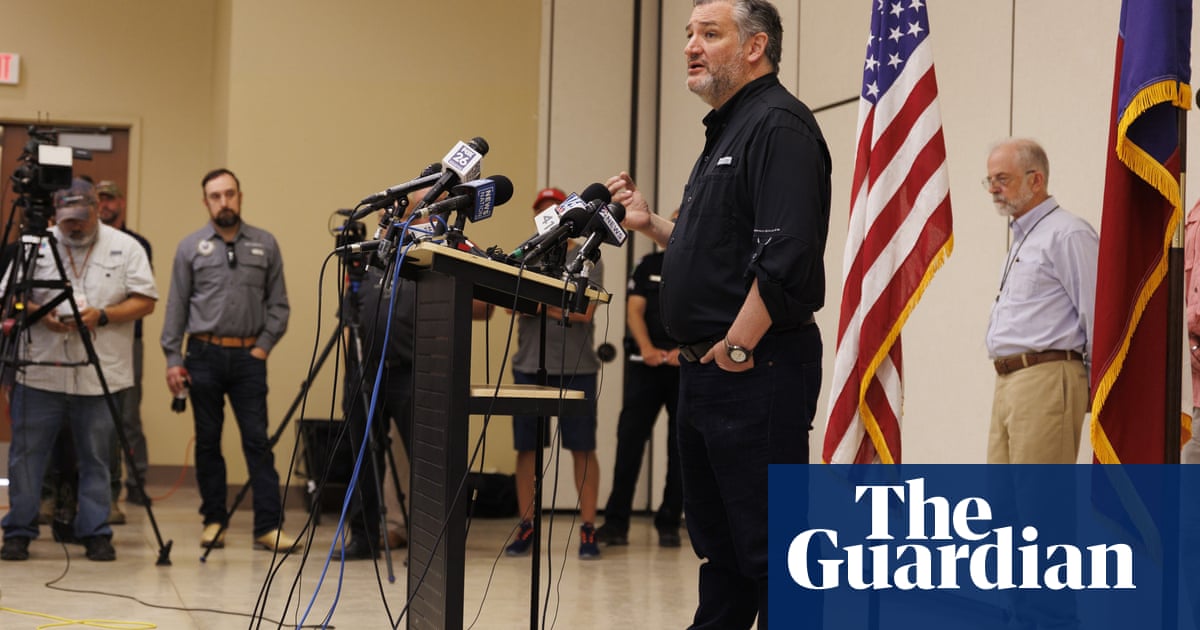Ted Cruz: A Week of Controversy Amid Natural Disaster
A Polarizing Figure in Troubling Times
Senator Ted Cruz has found himself in the spotlight this past week, facing a whirlwind of criticism for his actions during a tragic time for Texas. On Tuesday, Cruz supported a Republican spending bill that cut funding crucial for weather forecasting, only to leave for a vacation in Greece while his home state suffered from devastating floods. Critics have been quick to highlight this stark contrast, particularly given the historical context of Cruz’s previous escape to Cancun during a winter storm in 2021.
The Greece Getaway Amid Crisis
Delayed reactions to a catastrophic situation can often raise eyebrows, especially when a public figure appears to be enjoying leisure time far from the unfolding turmoil. Cruz was seen visiting iconic sites like the Parthenon in Athens just a day after flash floods along the Guadalupe River resulted in over 100 fatalities, including numerous children. Photos of Cruz basking in the Mediterranean sun sparked outrage, particularly as families in Texas were grappling with loss and devastation.
Political Promises Don’t Equal Action
Upon returning to Texas, Cruz addressed the tragedy and acknowledged the need for accountability. Speaking to Fox News, he stated, “There’s no doubt afterwards we are going to have a serious retrospective…something went wrong there.” This statement, while addressing the crisis at hand, has been perceived as insufficient by many who argue that proactive measures were within his power before the flooding occurred.
Funding Cuts: A Flawed Approach
One of the most troubling aspects of Cruz’s actions this week is the funding he backed to cut the National Oceanic and Atmospheric Administration (NOAA) budget, which is vital for improving weather forecasting. By endorsing a bill that erased a $150 million fund aimed at enhancing forecasting systems, Cruz aligned himself with a political agenda that undermines the very frameworks designed to predict and mitigate natural disasters. The timing of this decision has left many questioning whether he fully understands the repercussions of such cuts.
Scrutiny on Weather Services Post-Disaster
In the wake of the flooding, the National Weather Service has faced considerable scrutiny for allegedly underestimating rainfall levels leading to the tragic events in Texas. Many residents were reportedly not evacuated in time, raising questions about the adequacy of alerts and coordination with local emergency services. Cruz’s quick shift from vacationer to critic of the warning systems reflects a complicated narrative—one that critics argue he helped exacerbate.
The Bigger Picture: Climate Policy and Community Safety
Environmental groups have expressed outrage, linking Cruz’s actions to a broader trend of defunding essential services that safeguard public safety in the face of climate change. Over 600 employees have exited the National Weather Service since a concerted push to reduce federal funding, leaving offices across the nation understaffed and potentially ill-equipped to respond effectively to disasters like the recent flooding.
Response from Cruz and the Trump Administration
In the aftermath, Cruz brushed off accusations of negligence, framing criticism regarding funding cuts as “partisan finger pointing.” His assertion that warnings were issued timely, despite the tragic outcomes, does little to appease fears that essential services are inaccessible due to funding cuts.
Moreover, the Trump administration has argued that staffing at the National Weather Service was adequate. However, internal employee unions contend that critical roles—such as meteorologists who coordinate local emergency responses—remain vacant. The implications of this ongoing staffing crisis become even clearer when paired with the high stakes of severe weather patterns intensified by climate change.
Future Implications for Weather Research
Looking ahead, the Trump administration’s proposed budget for 2026 signals intentions to dismantle NOAA’s weather and climate research labs, threatening the fundamental research needed to advance forecasting technologies. With each budget proposal that prioritizes cuts over investment, the danger becomes increasingly apparent: as extreme weather events rise due to climate change, so too do the potential human costs.
The Science of Climate Change and Its Effects
Experts like Andrew Dessler from Texas A&M University highlight the critical link between climate change and the recent extreme weather. “Every weather event we see now carries some influence from climate change,” he notes, underscoring the urgent need for policy that addresses the root causes of climate instability.
In closing, Cruz’s recent actions raise a crucial point of discussion—one that bridges public safety, environmental responsibility, and political accountability. As the climate crisis mounts, the path forward will undoubtedly challenge leaders both in Texas and nationally to rethink priorities for the sake of future safety and preparedness.


